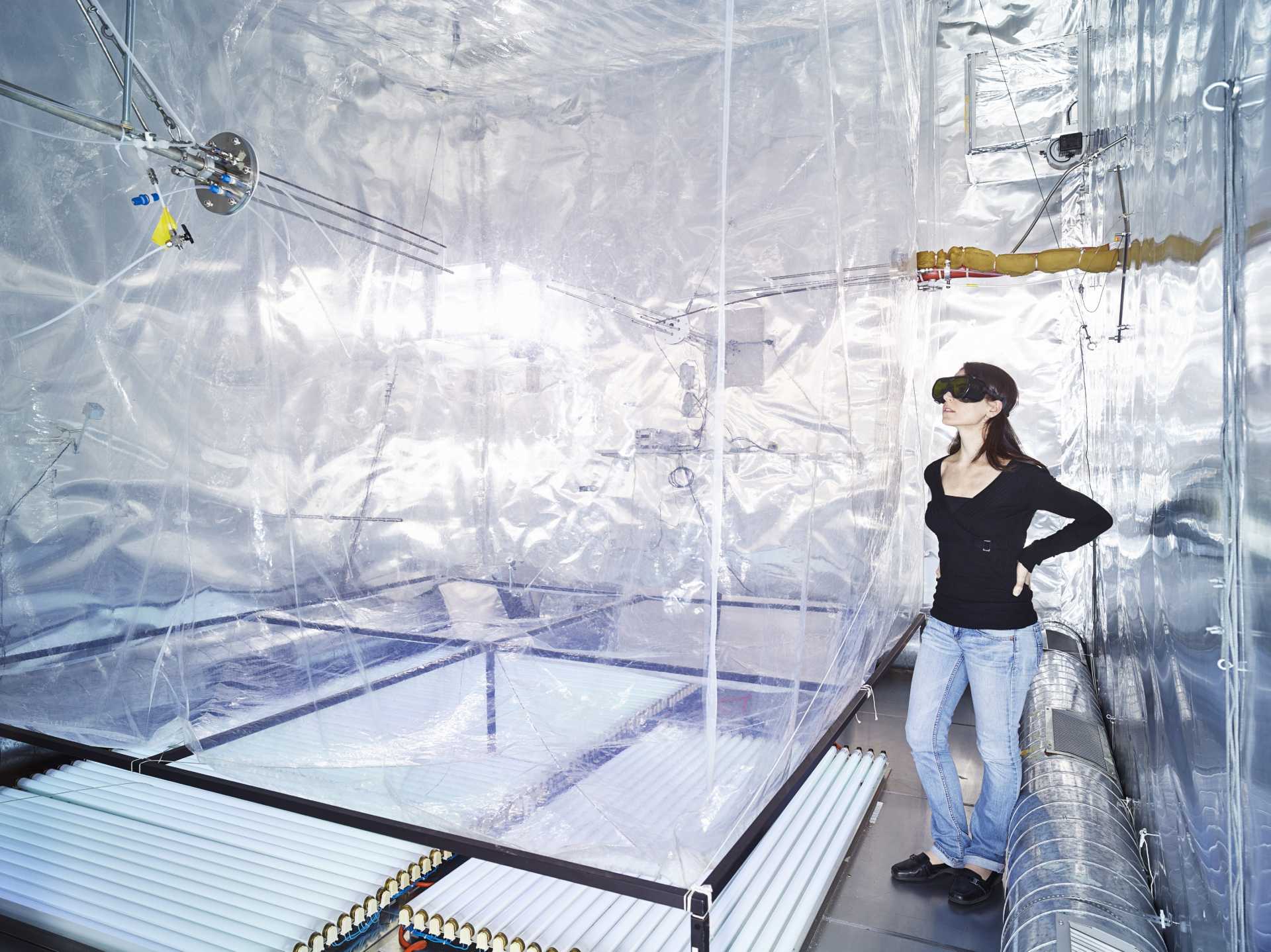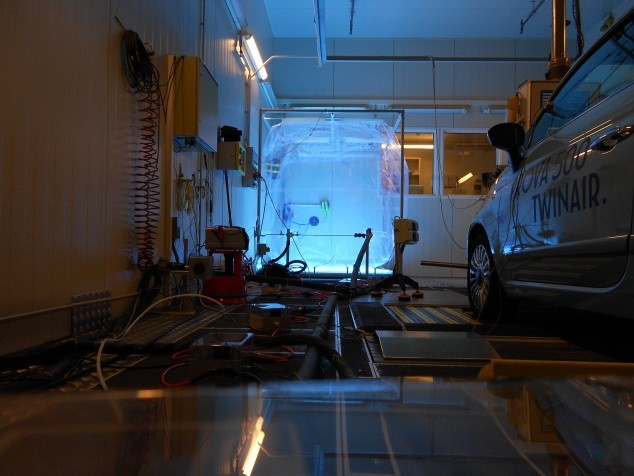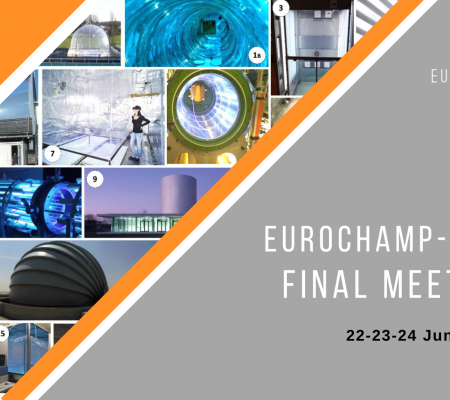| General information | |
| Access mode | Remote and physical access: instrument calibration |
| Infrastructure name and acronym | Calibration Centre for Soot Measurements (CCSM) |
| Photos |
  |
| Location | Villigen, Switzerland |
| Website | https://www.psi.ch/lac/facilities |
| Legal name of organisation operating the infrastructure | Paul Scherrer Institut (PSI) |
| Description of the infrastructure | |
| Brief general description of the infrastructure to which access is offered |
The CCSM consists of 3 different simulation chambers (PACS-C3) equipped with state-of-the-art soot instrumentation which are used for calibration for a wide range of different soot types and compositions. The 27 m3 stationary chamber has the advantage of a large air volume required for Intercomparison of several instruments for longer times. The 9 m3 mobile chamber can be brought to any emission source or test bench. The 9 m3 coolable chamber (-10 to 30°C) is able to simulate organic aerosol formation at lower temperatures, which is especially relevant for cooling exhaust plumes (e.g. wood burning) with changing black carbon (BC) to organic carbon (OC) ratios. Unique is the wide range of calibration conditions offered by combination of these chambers with the following reference instruments. Black carbon is measured by a single particle soot photometer (SP2) and a pulsed laser induced incandescence (LII) instrument, where the SP2 also determines the coating thickness of non- absorbing material that surrounds the BC core. Equivalent black carbon (eBC) is measured based on the light absorption of the particles by a multi-angle soot photometer (MAAP) and several aethalometers. For a detailed characterization of the particle phase condensation particle counters, scanning mobility particle sizers, and a high resolution time of flight aerosol mass spectrometer (TOF-AMS) are used. By sampling different types of combustion exhausts into one of the chambers and simulation of aging through photochemical reactions the black carbon particles can be coated with a varying amount of scattering material, allowing for a wide variety of calibration conditions with varying BC to OC ratios. |
| Services currently offered by the infrastructure and its research environment |
The CCSM offers specific calibration experiments for instruments measuring black carbon, where the black carbon core aerosols will be coated with varying amounts of scattering material. The CCSM has a vast experience of producing well defined mixtures of exhaust samples as well as of artificial soot particles and processing these under atmospherically relevant conditions. Furthermore, these calibrations can be done at specific emission sources with the mobile chamber. The chambers and its instrumentation have been used to investigate primary emissions and secondary organic aerosol formation from a wide variety of sources, such as diesel cars (Chirico et al., ACP 2010), gasoline cars (Platt et al., ACP, 2013), scooters (Platt et al., Nature Comm., 2014), or wood combustion (Bruns et al., ACP, 2015), to study physical properties of different types of soot particles (Gysel et al., AMT, 2012), the hygroscopic properties of fresh and aged wood burning particles (Martin et al., J. Aerosol Sci., 2013), the ice nucleation properties of diesel and wood burning particles (Chou et al., ACP, 2013), as well as health effects of different exhausts directly and after aging (Künzi et al., Nature Sci. Rep., 2015). |
| Modalities of access and support offered under EUROCHAMP-2020 | |
| Typical duration of work |
Typically ~3-4 weeks |
| Community/user type served |
Expert and young researchers, PhD students, company representatives |
| Scientific and technical support offered | Both scientific and technical support is offered. |
| Logistic and administrative support offered | A guest house is available for cheap accommodation. Support is also offered for the planning of instrument transportation |
| Person in charge of access provision at the infrastructure | Dr. Martin Gysel, Head Aerosol Physics Group, martin.gysel@psi.ch Prof. Dr. Urs Baltensperger, Head Laboratory of Atmospheric Chemistry, urs.baltensperger@psi.ch |





